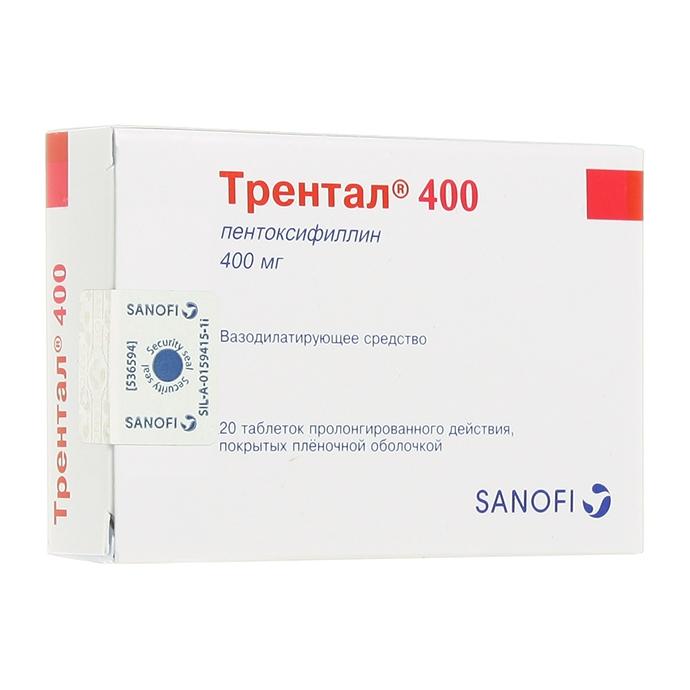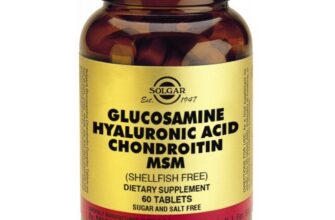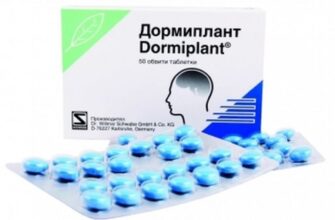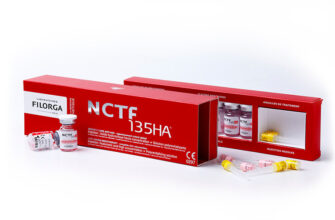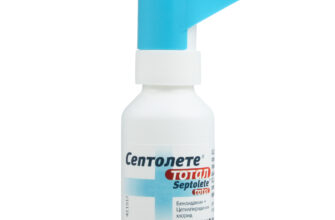Review of the best according to the editorial board. On the selection criteria. This material is subjective and does not constitute advertising and does not serve as a purchase guide. Before buying, you need to consult with a specialist.
This review will focus on drugs commonly referred to as 'blood thinners'. On the Runet there are numerous materials on this topic, in which you can find information about a variety of tools. In such articles, a variety of medicines are described that are intended not only to improve the fluidity, that is, the rheology of blood, but are also folk remedies. Information is provided on substances obtained from living structures (hirudin), thinning drugs for the treatment of varicose veins based on herbal ingredients. Such a 'free placement' of all these numerous, very different means, biological preparations and plant extracts in the group of 'blood thinners' is not entirely correct.
In fact, there are a rather limited number of drugs that have proven efficacy and systemic action, which belong to the category of so-called antiplatelet agents, or improve the rheological properties of blood (improve its fluidity).
- A little about blood density and its rheological properties
- Rating of the best drugs for thinning blood
- Acetylsalicylic acid (Cardiomagnyl, Thrombo-Ass, ASA – Cardio, Aspirin-Cardio)
- About enteric forms and systemic action
- Pros and cons of ASK
- Curantil (dipyridamole)
- Pros and cons
- Plavix, Deplatt, Zylt, Clopigrant, Lopirel, Egithromb (clopidogrel)
- Pros and cons
- Trental, Agapurin, Vasonite (pentoxifylline)
- Pros and cons
- Wessel Douai F, Angioflux (sulodexide)
- Pros and cons
A little about blood density and its rheological properties
But before proceeding to the description of antiplatelet agents – these preventively important medicines that thin the blood and saved hundreds of thousands of lives, you need to understand what a 'deterioration in the fluidity' of blood is, and how such blood differs from 'thick blood'.
There is such a simple laboratory indicator as hematocrit. Hematocrit is the percentage, volumetric ratio between the liquid part of the blood, or its plasma, and cells – shaped elements. The greater the ratio, the thicker the blood. This density can occur due to an absolute factor, for example, excessive multiplication of all blood cells with a normal amount of plasma (polycythemia vera, or Vakez disease).
But much more often the hematocrit increases due to a decrease in the amount of the liquid part of the blood and is called relative. For example, this is a severe intestinal infection with repeated diarrhea and vomiting, when the blood thickens due to fluid loss. Physiological dehydration also occurs. For example, long-term hard physical labor in a dry, hot climate and intense sweating.
Does the blood thicken during these processes? Of course it is thickening. Do you need blood thinners in this case? Of course not needed. It is enough to restore the fluid balance that has been changed, and the blood will acquire the lost rheological properties. What then drugs are called agents that thin it? These are funds from two groups: anticoagulants and antiplatelet agents.
- Anticoagulants, or drugs that inhibit blood clotting, are prescribed only by a doctor and are not available over the counter without a prescription. These include some pills such as Warfarin, Fenilin. But much more often such agents are used that are prescribed subcutaneously. This is heparin and its modifications, which belong to more modern low molecular weight fractions, for example, Fraxiparin. Since these drugs can cause a significant number of side effects during self-treatment, these drugs will not be considered in this review.
- Preparations from the group of antiplatelet agents (thinners) reduce the adhesion of blood cells to each other (reduce their aggregation, and, above all, platelets). They prevent the formation of so-called sludge, or columns of blood cells, which are the 'embryos' of blood clots. As you know, thrombosis underlies vascular catastrophes leading to death, such as heart attack and stroke.
Therefore, the general indications for the appointment of thinning agents will be an increased risk of thrombosis, the presence of progressive varicose veins, certain forms of hypertension with a high risk of heart attack and stroke, atherosclerosis and an increased concentration of cholesterol in the blood plasma. A separate indication for the appointment of antiplatelet agents is the general increased risk of heart attack and stroke in the population. So, the male population of large cities in Russia in the overwhelming number after the age of 45 has such a risk, therefore if a man over 45 has a tendency to sedentary work, is overweight, he has bad habits and especially smoking, then he is shown a reception disaggregants.
In world practice, not so many drugs from this group are known that have proven efficacy, but each of them has been tested for many years on tens of thousands of volunteers and patients with very different pathologies, and it was they who entered the rating. It is opened by such a well-known drug as acetylsalicylic acid, colloquially called by one of the oldest trade names – 'Aspirin'.
Rating of the best drugs for thinning blood
| Nomination | a place | Name of product | minimum price |
| Rating of the best drugs for thinning blood | 1 | Acetylsalicylic acid (Cardiomagnyl, Thrombo-Ass, ASA – Cardio, Aspirin-Cardio) | 117 RUB |
| 2 | Curantil (dipyridamole) | RUB 525 | |
| 3 | Plavix, Deplatt, Zylt, Clopigrant, Lopirel, Egithromb (clopidogrel) | 947 RUB | |
| 4 | Trental, Agapurin, Vasonite (pentoxifylline) | 144 RUB | |
| 5 | Wessel Douai F, Angioflux (sulodexide) | 2 351 rub. |
Acetylsalicylic acid (Cardiomagnyl, Thrombo-Ass, ASA – Cardio, Aspirin-Cardio)
Rating: 4.9
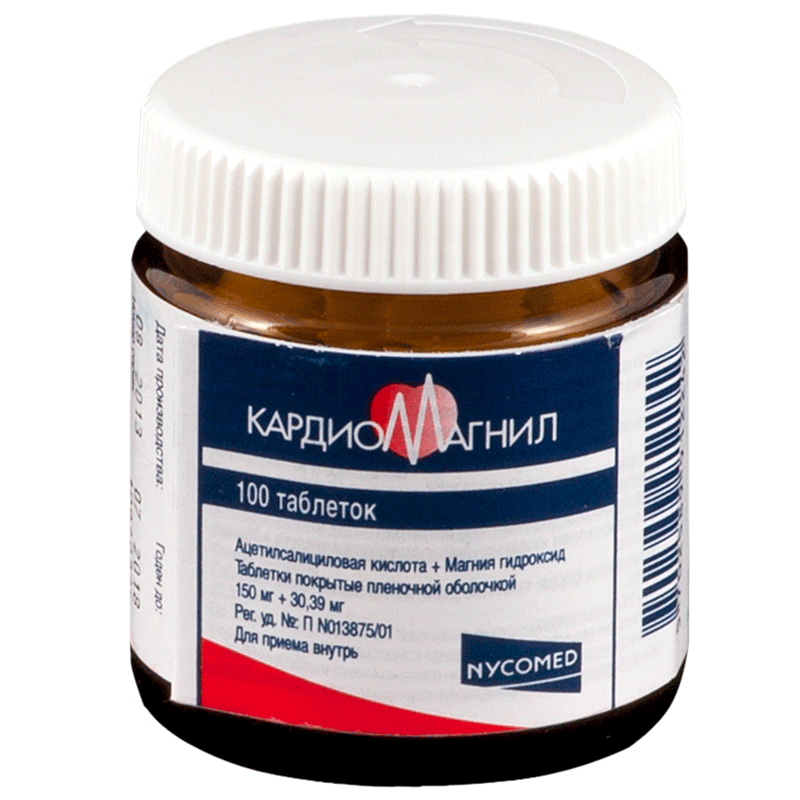
Acetylsalicylic acid is the ancestor of a large and very important group of drugs called non-steroidal anti-inflammatory drugs (NSAIDs). The first word – 'non-steroidal' – means that they have nothing to do with steroid hormones, which have the strongest ability to suppress inflammation.
Acetylsalicylic acid is an artificially enhanced natural variety of one of the salicylates that was previously used in medicine as an antipyretic agent. Most of all it was contained in the bark of white willow (salicin), it is also in raspberries. The artificial molecule of acetylsalicylic acid is a much stronger substance.
During the 20th century, many different products from this group were created, such as Ibuprofen, Meloxicam, Nimesulide and others. All of them, to varying degrees, are able to suppress the development of inflammation, reduce pain syndrome, and have antipyretic effects.
Along the way, it turned out that low doses of acetylsalicylic acid, which are not high enough to reduce high fever, with planned and prolonged use, significantly reduce the risk of thrombosis and the development of heart attacks and ischemic strokes. It was found that after a single dose of acetylsalicylic acid, the effect of improving blood flow persists for a whole week.
The mechanism of action is based on blocking the type 1 cyclooxygenase enzyme (COX – 1). This leads to the launch of a cascade of processes: the synthesis of prostaglandins, thromboxane and other substances is blocked, and this leads to a decrease in aggregation, or adhesion of platelets to each other, and suppression of thrombosis induction. The establishment of this fact was a real gift for medicine. Over the decades, a lot of practical material has accumulated, and at present, the minimum dosage that, when taken daily, can reduce the risk of developing vascular catastrophes is 75 mg. The standard dosage fluctuates around 100 mg in terms of acetylsalicylic acid.
All cardiac 'aspirins' are designed for long-term use and are taken before meals with plenty of fluids. The main indications, as mentioned above, are the prevention of acute myocardial infarction, secondary prevention of heart attacks and ischemic strokes. Cardiac 'aspirin' is used to prevent thromboembolic complications after surgery and various vascular interventions. Indications for the use of ASA (acetylsalicylic acid) are very wide. These are diabetes mellitus and obesity, angina pectoris and the risk of developing vascular accidents. It is used in the presence of bad habits, and especially when smoking. The use of acetylsalicylic acid improves the condition of coronary implants, various grafts, including those after valve surgery and after coronary artery bypass grafting.
Nevertheless, acetylsalicylic acid, even in such small dosages, but used for a long time, has its own contraindications. First of all, this is an exacerbation of gastric ulcer and duodenal ulcer, as well as erosive gastritis. These are conditions with a high risk of gastrointestinal bleeding, low blood clotting, hemorrhagic diathesis. In no case should it be used during pregnancy, lactation and persons under 18 years of age. For children, the use of acetylsalicylic acid is strictly prohibited due to the possible development of Reye's syndrome up to death, therefore, children are prescribed either ibuprofen or paracetamol drugs in order to reduce fever and reduce inflammatory symptoms.
Aspirin is contraindicated in the so-called aspirin asthma, and recurrent nasal polyposis. It should not be used for severe renal and hepatic insufficiency. There are also a large number of relative contraindications, such as gout, hyperuricemia, condition before surgery due to the possible development of bleeding.
Overdose symptoms may also occur, and they are especially dangerous in the elderly, therefore, only a doctor should prescribe ASA for long-term use.
A large number of low dosage varieties of acetylsalicylic acid, known as 'heart aspirins', are now available in pharmacies. So, if we consider the popular dosage of 100 mg, then one package, designed for a month's intake, and consisting of 30 tablets, has a different, but low cost, depending on the manufacturer. So:
- ASK – Cardio, a domestic manufacturer Medisorb, will cost an average of 50 rubles;
- Aspicor of the domestic manufacturer Vertex CJSC in the same dosage and in the same amount costs 56 rubles;
- Cardiac manufactured by Kanonfarma Production CJSC – 60 rubles.
As you can see, the price of domestic drugs is about the same. If we consider an imported drug, for example, Thrombo-ACC in the same dosage and in the amount of 28 tablets, produced by the Austrian company Lannacher, then its cost will be the same – 52 rubles. per packing.
About enteric forms and systemic action
Currently, the so-called 'enteric forms' of acetylsalicylic acid, or blood thinning tablets, which bypass the stomach and dissolve only in the small intestine, are very popular in the pharmaceutical market. This fact is achieved by adding a special coating for the acetylsalicylic acid tablet, which consists of magnesium hydroxide. Everyone knows that this base is part of antacids, and simply helps acetylsalicylic acid bypass the acidic environment of the stomach.
According to manufacturers, such a device helps reduce the risk of the most common side symptom – the occurrence of an increased risk of gastric bleeding, exacerbation of ulcerative and erosive processes in the gastric mucosa.
But in fact, it has long been proven that the ulcerogenic, or promoting the activation of a stomach ulcer, the action of acetylsalicylic acid is a systemic effect. This means that ASA harms the stomach not only locally, being inside it, but already passing through the entire gastrointestinal tract, and being absorbed into the blood. This means that relying only on local cover when taking acetylsalicylic acid will not be a sufficient way to protect against systemic side effects, and this can be regarded as an element of an advertising strategy.
Perhaps the most famous drug from this group will be Cardiomagnet. You can also name drugs such as Trombital, Trombomag, Phazostabil, and so on. The price of these tablets is a little higher than just tablets without a protective, acid-resistant coating. So, a package of Cardiomagnyl in 30 tablets of 75 mg, calculated for a month, is, on average, 135 rubles.
Pros and cons of ASK
Whatever the disadvantages of acetylsalicylic acid, all the same, the benefits significantly outweigh all kinds of shortcomings (of course, if the prescription and administration of the drug is under medical supervision). The main disadvantages will be absolute contraindications – exacerbated gastric ulcer, the risk of gastrointestinal bleeding, childhood and all those conditions that were mentioned above. Bleeding may develop if a tooth is removed and other manipulations are performed while taking aspirin. There is a fact of the development of aspirin asthma, individual intolerance to this drug and other conditions.
But still, taking into account all the contraindications and side effects, all these cases are significantly less than the number of patients who need to reduce the risk of heart attack and stroke, which include millions of people. Acetylsalicylic acid tablets are inexpensive, well tolerated by the vast majority of patients, and are considered life-prolonging agents in the presence of cardiovascular risk factors.
Curantil (dipyridamole)
Rating: 4.8
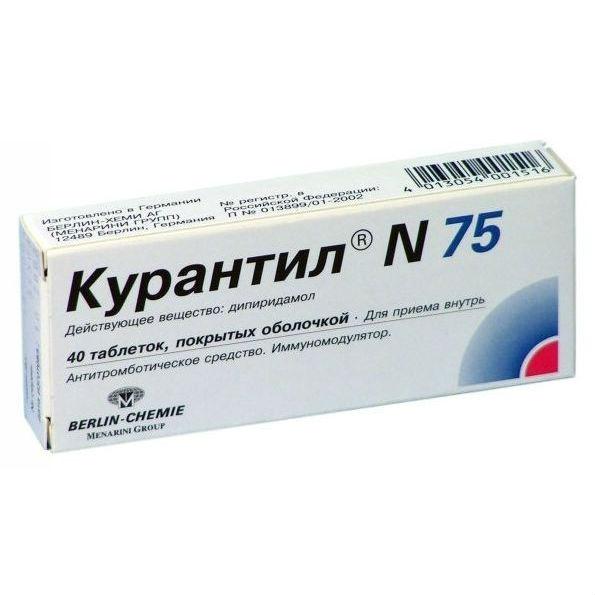
Dipyridamole, or Curantil, is the second drug from the group of antiplatelet agents for blood thinning with proven effectiveness, but it is prescribed somewhat less frequently than acetylsalicylic acid. And this is unjustified: ASK's advertising is so strong that it 'pushed into the shadows' dipyridamole. Curantil not only improves the rheological properties of blood and helps to reduce platelet aggregation, but also has other systemic hemodynamic effects. So, it dilates blood vessels, and this effect is especially noticeable on small coronary arteries and arterioles.
As a result, Curantil reduces the total peripheral vascular resistance, helps to lower blood pressure, and additionally contributes to the normalization of venous outflow. In the brain, it reduces the resistance of cerebral vessels, and in obstetrics and gynecology it can improve placental blood flow, especially in various threatening conditions. In addition, dipyridamole activates the immune system, and increases the activity of the interferon induction system. As a result, this substance has not only antiaggregatory, but also angioprotective and immunomodulatory effects.
Curantil is prescribed in the same way as acetylsalicylic acid, in order to prevent arterial and venous thrombosis, thromboembolism, and microcirculation disorders. A special indication will be the prevention of pulmonary embolism after surgery, after valve surgery. Shown Curantil as a remedy for stopping placental insufficiency in complicated pregnancy. For prevention, it is necessary to take Curantil at a dosage of 75 to 225 mg per day, dividing the daily dose into several doses. The agent is used as a vasodilator and for prophylaxis for a long time, under the supervision of a physician.
A separate indication, and very unusual for thinners, would be the prevention of influenza and respiratory viral infections. For this, the funds are used in a minimum dosage of 25 mg 2 times a day (in one day). This dosage is applied only once a week for a month. That is, a person uses Curantil for only 4 days per month.
Curantil is produced by the famous German pharmaceutical company Berlin-Chemie, the Menarini group. A package of 120 tablets with a dosage of 25 mg will cost an average of 650 rubles. If the patient is prescribed a minimum dosage of 75 mg per day, then this amount will be enough for about a month and a half. If twice the dosage is required, then this package may be enough for only one month or even less. There are also domestic analogues, for example, dipyridamole, which is produced by the pharmaceutical company Obolenskoye. So, 120 tablets can be purchased at a price of only 387 rubles. This is, of course, a much smaller amount.
Pros and cons
The advantage of dipyridamole, or Curantil, will be the ability to use it as a vasodilator (vasodilator), which acetylsalicylic acid is devoid of. It should be administered to patients several times a day, and a flexible approach to the daily dose is important, which can range from 75 to 600 mg. The possibility of using it in obstetrics and gynecology is important, including not only for prophylactic, but for therapeutic purposes.
Few specialists prescribe dipyridamole as an antiviral or immunomodulatory substance, but, nevertheless, some experience has been accumulated in its use during periods of acute respiratory viral infections and influenza. Of course, dipyridamole is considered more expensive than the many trade names for acetylsalicylic acid, but it also 'works' not only as a deaggregant. It not only affects the rheological properties of blood, but also improves hemodynamics in the heart, cerebral and placental vessels.
Of course, dipyridamole also has contraindications, for example, acute heart attack, unstable angina pectoris, severe forms of hypertension and hypotension, hemorrhagic disorders and childhood. It should be especially remembered that coffee and tea, which are consumed in significant quantities, weaken the effect of Curantil.
Plavix, Deplatt, Zylt, Clopigrant, Lopirel, Egithromb (clopidogrel)
Rating: 4.7
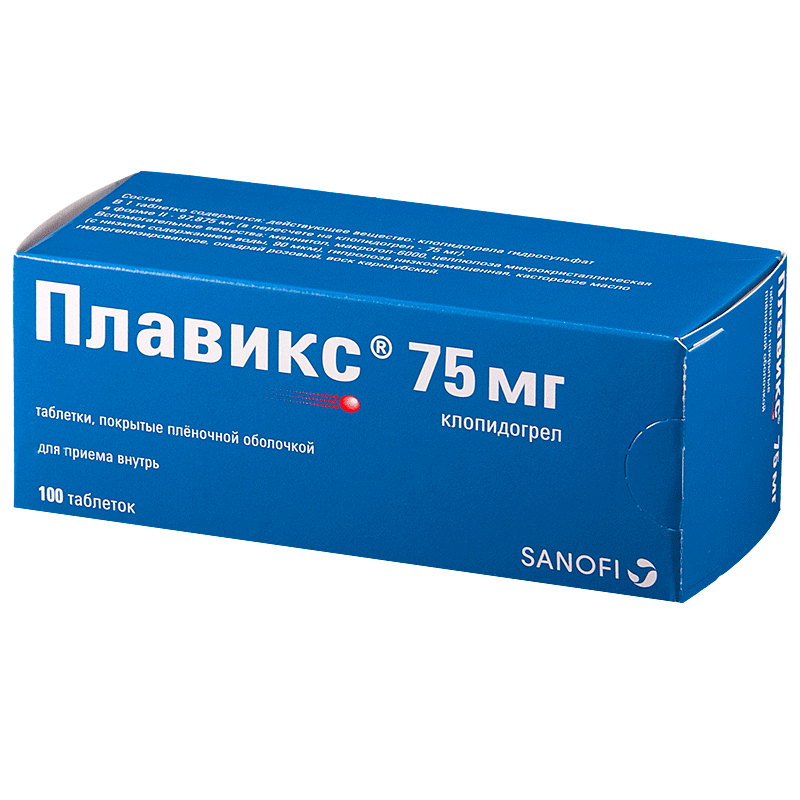
Plavix, or clopidogrel (INN), will be a serious drug, and it also belongs to the antiplatelet agents, like ASA, which thinns the blood. Naturally, the higher power and force of action of Plavix will never push ASK to the second and third positions. The fact is that aspirin is immeasurably cheaper, as well as widespread and safe to use. Clopidogrel, on the other hand, has a completely different mechanism of action associated with irreversible changes in specific receptors on platelets.
Clopidogrel was first introduced into clinical practice in 1997, and was initially used in fairly serious cardiac patients. The indications for the appointment were acute coronary syndrome, including those with ECG changes, percutaneous coronary intervention, and other cases. Sufficiently high efficiency was noted in patients with unstable angina pectoris. In an outpatient clinic, it is important that a large experience has been accumulated in the use of clopidogrel in patients with atherosclerosis, in particular with chronic cerebral ischemia. Therefore, in the event that the patient has resistance to antithrombotic therapy, and aspirin alone cannot cope with improving the rheological properties of the blood, then clopidogrel is the drug of choice or expansion of the scheme, especially if the cardiovascular system has already been compromised by myocardial infarction or the presence of unstable angina.
One of the important advantages of clopidogrel over acetylsalicylic acid will be the ability to prescribe it to patients with unstable angina pectoris, which is based on vasospasm, and aspirin is contraindicated for this diagnosis.
It is important that Plavix can be used not only as monotherapy, but also together with acetylsalicylic acid, and even as part of triple antithrombotic therapy. Thus, Plavix was effective in such a complex combination as its combined use with acetylsalicylic acid and the anticoagulant Warfarin. This combination may be necessary in patients with atrial fibrillation and prosthetic heart valves.
Typically, the standard dosage of Plavix in patients with atherosclerotic vascular changes who have recently had a heart attack or stroke is 75 mg per day. Already at this dosage, there is a statistically significant reduction in the risk of re-heart attack, stroke and cardiovascular death. It is important that the use of clopidogrel was associated with a significantly lower number of side effects, such as the development of gastrointestinal bleeding, compared with acetylsalicylic acid. It is necessary to take Plavix for a long time.
Currently, the pharmacy sells both the original liquefaction medicines – Plavix, manufactured by Sanofi, and generics. So, a package of Plavix with a dosage of 75 mg, calculated for a monthly course, costs an average of 990 rubles. Indian generics such as Clapitax will cost half the price. Clopidogrel Canon, produced by the domestic pharmaceutical company CJSC Canonpharm Production, will cost 340 rubles. Perhaps this is one of the cheapest analogs on the domestic market.
Pros and cons
First of all, you need to remember that Plavix, or any clopidogrel, is a serious medicine for compromised patients. It should not be taken simply by relatively young people with a low level of physical activity, overweight and bad habits. In this case, acetylsalicylic acid will quite cope with prevention. But patients with the development of systemic atherothrombosis, after various heart operations, who have suffered a heart attack or stroke, need to use this medicine for secondary prevention.
A very big plus will be the fact that it is combined with acetylsalicylic acid, and for such people it significantly reduces the risk of cardiac death when compared with a separate intake of ASA. The disadvantage of clopidogrel is considered to be a rather high cost, and the need, against the background of its use, to regularly monitor various types of bleeding, as well as monitor the functional state of the liver.
Trental, Agapurin, Vasonite (pentoxifylline)
Rating: 4.6
Previous drugs such as acetylsalicylic acid and clopidogrel have regulated blood clotting by altering the properties of platelets. Trental (INN pentoxifylline) has a thinning effect in several ways. It reduces platelet aggregation, but it also affects red blood cells. It improves their ability to tolerate deformation, especially by penetrating through small capillaries. Pentoxifylline reduces the concentration of fibrinogen, which regulates the rate of blood clots, reduces the ability of adhesion, or adhesion, of white blood cells to the inner vascular wall. Therefore, as a result, the normalization of the rheological properties of blood is complemented by an improvement in microcirculation and a vasodilating or vasodilating effect.
Pentoxifylline is an active substance, and the mechanism of action of this compound is associated with a decrease in the activity of phosphodiesterase (PDE) in vascular muscle cells and in blood elements.
The great value of this drug is the improvement of capillary blood flow, or microcirculation, in areas with their violation. Therefore, pentoxifylline and its varieties are indicated for all vascular diseases, which are accompanied by impaired capillary blood flow.
These are various trophic ulcers on the legs, including those in diabetes and severe stages of varicose veins. Pentoxifylline is prescribed for diabetic angiopathy, for various disorders of cerebral circulation. Most often, Trental is prescribed to patients with cerebral atherosclerosis, but it can also be used in people with post-traumatic and alcoholic encephalopathy, with dizziness, and memory impairment. Trental is indicated in case of development of sensorineural hearing loss, with circulatory disorders in the retina. It is prescribed in outpatient practice in tablets of 100 mg, three times a day, followed by a gradual doubling of the dose. At the same time, pentoxifylline should not be used more than 1200 mg per day in three doses, that is, a single dose should not exceed 400 mg. Low-dose treatment is also possible, especially in patients with low blood pressure. After all, Trental has a vasodilating effect, and can independently lower blood pressure. The duration of the course is set by the doctor.
Trental is produced by the manufacturer Sanofi-Aventis, and the average cost of a package of 60 100 mg tablets is 530 rubles. With an average dosage of 600 mg per day, such a package will only last for 10 days, and the monthly cost of the course will be about 1600 rubles. Therefore, Trental cannot be considered cheap.
Pros and cons
A big plus of Trental will be the ability to influence the microvasculature. This allows him to cope with rather complex conditions in which various trophic disorders arise. However, it is contraindicated in case of massive bleeding, various acute processes, such as heart attack and stroke, retinal hemorrhage. Do not use it in pregnant women, nursing mothers and children. There are many relative contraindications. One of them is the joint appointment of Trental with Clopidogrel, and acetylsalicylic acid. Unlike its predecessors, this remedy is not used with other antiplatelet drugs. But, despite all the disadvantages, pentoxifylline is indispensable in large groups of patients who, in old age, suffer from a chronic disorder of peripheral circulation, be it the lower extremities, the retina of the eye or the microvasculature of the brain.
Wessel Douai F, Angioflux (sulodexide)
Rating: 4.5
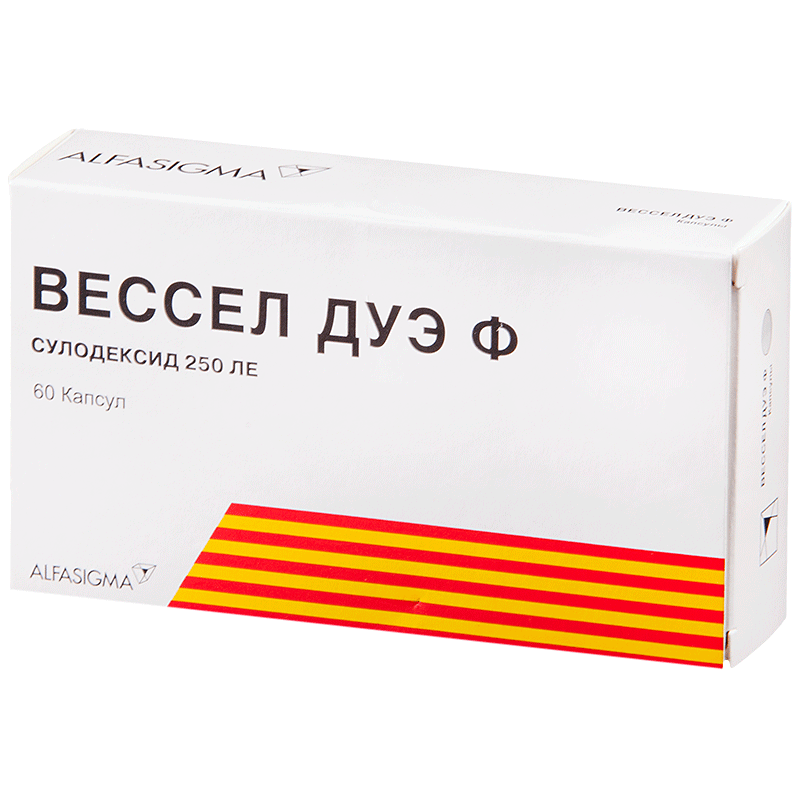
Perhaps the last in the cohort of 'big' drugs for thinning blood can be called Wessel Douay F. Its active ingredient is sulodexide, and there are almost no analogues on the domestic pharmaceutical market. You can also find Angioflux, which is produced by the domestic company Sotex Pharma. The original Wessel Douai F is produced by the Italian pharmaceutical company Alfa Wasserman. This medicine for blood thinning is available in ampoules, in capsules of 250 units each, and a package of 50 capsules of sulodexide will cost from 2,700 rubles.
As you can see, sulodexide is quite expensive for the average Russian drug consumer. Why is it so expensive? Sulodexide improves the rheological properties of blood, reduces thrombus formation, protects blood vessels and simultaneously has an anticoagulant effect. That is, it acts not only on the cellular, platelet link, but also on the plasma factors of hemostasis. Sulodexide is a natural compound of animal origin. It is secreted from the lining of the porcine intestine. The main component is a low molecular weight heparin-like fraction. Thus, the drug does not affect platelets, not their tendency to thrombosis, but exhibits a special affinity for certain coagulation factors: antithrombin III and heparin cofactor II.
Therefore, the antithrombotic effect is realized in completely different ways than that of acetylsalicylic acid, clopidogrel and pentoxifylline. The activation of plasma coagulation factor X is suppressed, the secretion of prostacyclin is increased and the amount of fibrinogen decreases. That is why Wessel Douai F is expensive: it acts softly, but at once on several links of hemostasis, both cellular and plasma. It is a disaggregant and an anticoagulant 'in one bottle'.
Sulodexide is indicated for use in patients with a high risk of thrombus formation: after a heart attack, with various forms of hypertensive encephalopathy, complicated by atherosclerosis. Wessel Douay F is indicated in the complex therapy for patients with diabetes mellitus, hypertension and vascular dementia. This remedy is successfully used in persons with occlusive lesions of the arterial vessels of the lower extremities against the background of atherosclerosis and diabetes. A very important indication is the treatment of a special complication called heparin-induced thrombocytopenia. It sometimes develops after taking heparin.
Initially, the drug is usually administered intramuscularly for 2-3 weeks, and then orally, one capsule per day between meals for a month.
Pros and cons
The advantage of Wessel Douai F is its effectiveness and good tolerance. Overdoses are rare, side effects are mild. Most often, various functional disorders from the organs of the gastrointestinal tract and allergic reactions can be encountered. This drug, under the supervision of a doctor, can be used in pregnant women and in nursing mothers, except for the 1st trimester of pregnancy. Hypersensitivity and increased bleeding, or the manifestation of hemorrhagic diathesis, can be considered a strict contraindication. Perhaps such a mild action and a small number of contraindications are dictated by the natural origin of sulodexide. At the moment, Wessel Douai F is an indispensable tool for the complex therapy of various thrombotic conditions, peripheral circulatory disorders, especially in cases where the patient has intolerance or contraindications to the appointment of acetylsalicylic acid and its analogues.
In conclusion, we can say that this rating of drugs for improving the indicators of rheological properties of blood did not include drugs obtained from leeches, drugs for the treatment of varicose veins based on hesperidin, diosmin and escin, many drugs based on medicinal plants and folk remedies for blood thinners . This rating included only those drugs that have proven global effectiveness and a large clinical research base, and at the same time have a systemic effect.
Attention! This rating is subjective and does not constitute an advertisement and does not serve as a purchase guide. Before buying, you need to consult with a specialist.


